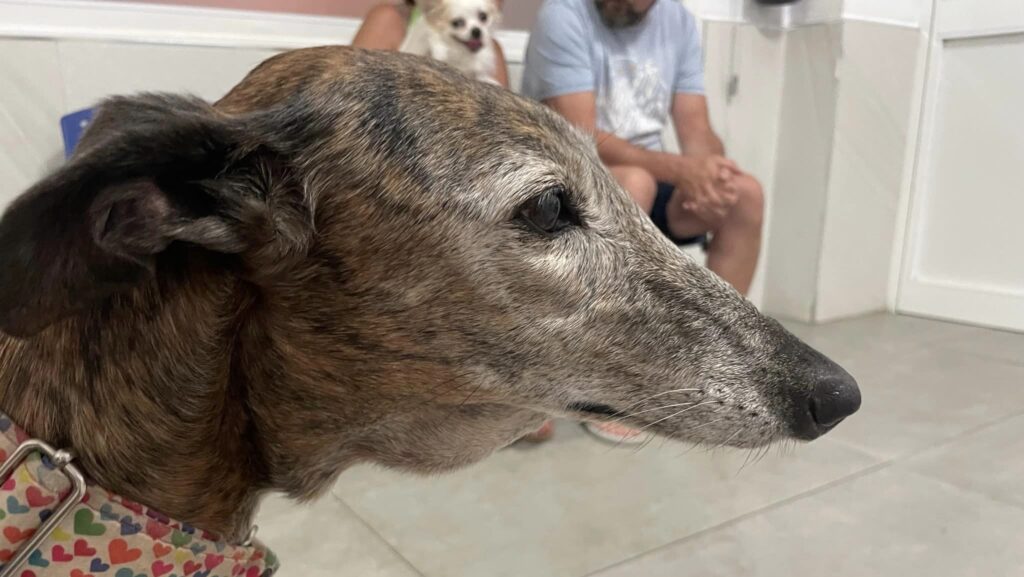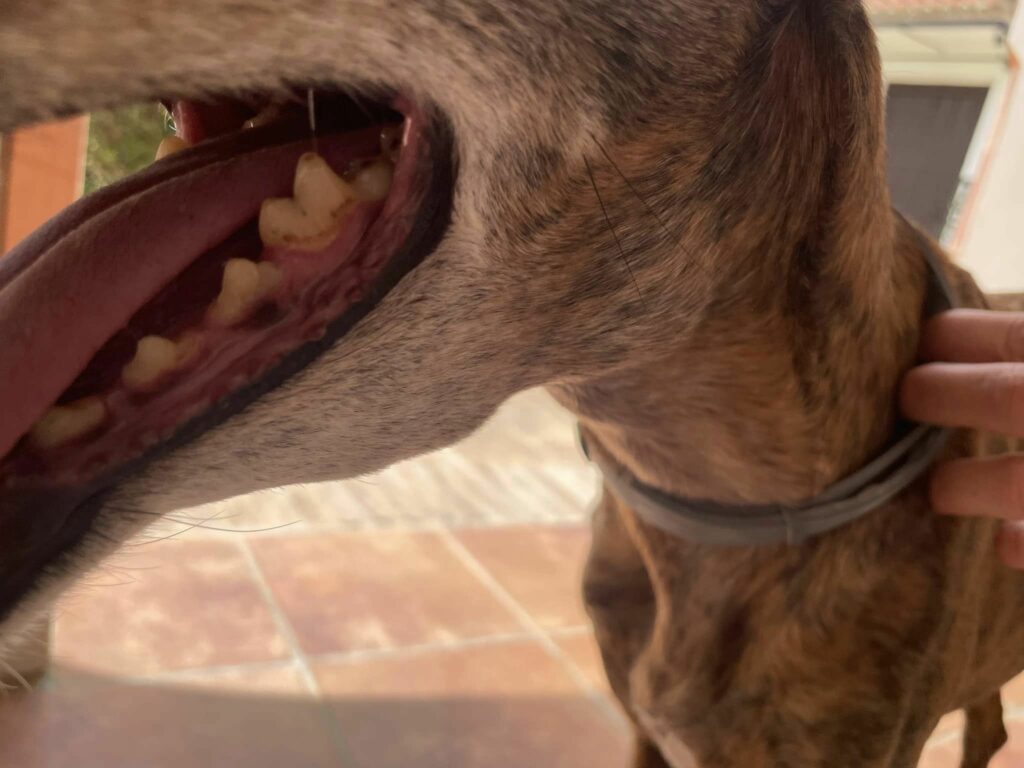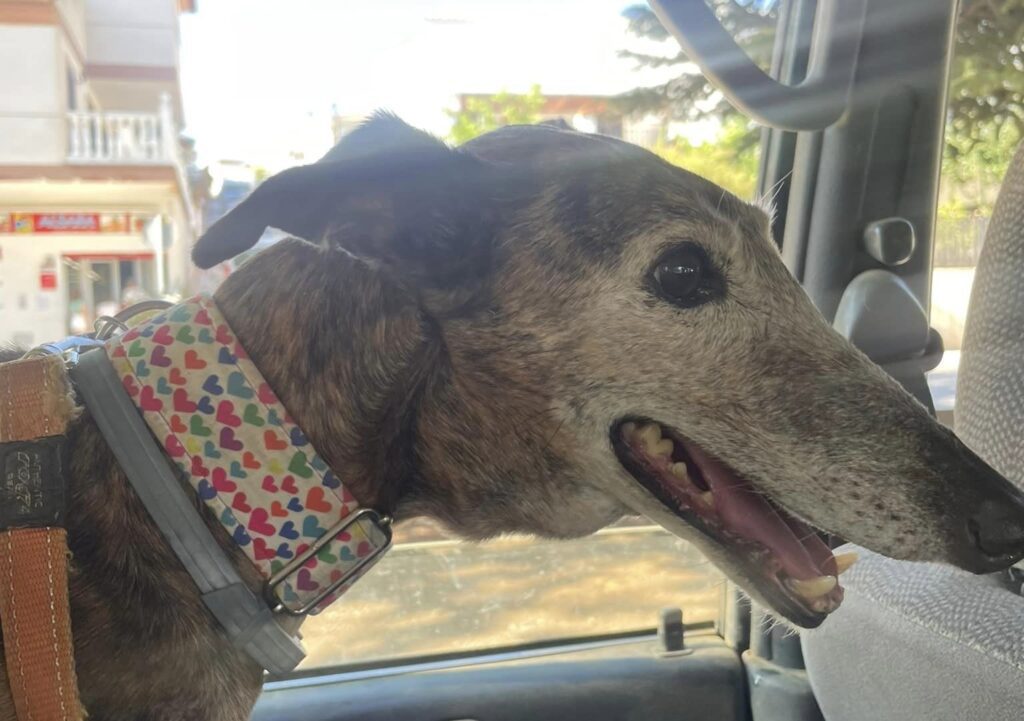Dog lymph node swelling is an indication of a wide range of health issues, from allergies and infections to more serious illnesses such as cancer.
Recognizing the signs and understanding how to reduce the swelling can help improve your pet’s quality of life.
In this blog post, we will discuss the causes of dog lymph node swelling, how to identify it in your pet, and tips on how to reduce the swelling.
We will also explore natural remedies that can help your dog feel better and regain their health.
- Key Takeaway
- What Do Swollen Lymph Nodes Look Like On Dogs?
- How To Reduce Dog Lymph Node Swelling
- Natural Remedies That Can Help Alleviate Dog Lymph Node Swelling
- How Long Does It Take Dogs To Recover From Swollen Lymph Nodes?
- How Important Is Early Detection And Treatment In Addressing Lymph Node Swelling In Canines?
- FAQs
- Q: What are the symptoms of swollen lymph nodes in dogs?
- Q: What can cause swollen lymph nodes in dogs?
- Q: How are swollen lymph nodes in dogs diagnosed?
- Q: What are the treatment options for swollen lymph nodes in dogs?
- Q: Where are the lymph nodes located in dogs?
- Q: What is lymphoma in dogs?
- Q: Can swollen lymph nodes in dogs be cured?
- Q: Should I be concerned if my dog has swollen lymph nodes?
- Q: Can dog owners palpate their dog’s lymph nodes themselves?
- In Conclusion
Key Takeaway
- Swollen lymph nodes in dogs appear as enlarged lumps that can be felt or seen under the skin, often round and semi-hard, and may cause discomfort when touched.
- Reducing dog lymph node swelling typically involves veterinary-prescribed treatments like antibiotics, anti-inflammatory medication, or in more serious cases, chemotherapy or surgery, depending on the underlying cause of the swelling.
- Natural remedies such as a balanced diet, regular exercise, and supplements like turmeric or Echinacea can help boost a dog’s immune system and potentially alleviate lymph node swelling, but they should be used in conjunction with, not as a replacement for, professional veterinary care.
What Do Swollen Lymph Nodes Look Like On Dogs?

Swollen lymph nodes in dogs can be noticeable as enlarged nodes that can be felt or seen under the skin.
They often appear as lumps where a dog’s lymph nodes are located.
The swelling can occur in one or multiple lymph nodes and is typically due to an underlying disease or infection.
Enlarged lymph nodes due to a neoplastic condition (cancer) are usually painless and hard. However, if lymphadenitis (inflammation of the lymph nodes) is present, the nodes may feel different.
In any case, they should feel fairly round, uniform in shape, and semi-hard. These swollen nodes shouldn’t be hot or painful to touch.
See also: How Do Dogs Get Lymph Node Cancer
How To Reduce Dog Lymph Node Swelling

Here is how to reduce dog lymph node swelling:
Step 1: Schedule a Veterinary Appointment
As soon as you notice your dog’s lymph nodes are swollen, make an appointment with your veterinarian. It is crucial to get a proper diagnosis to determine the cause of the swelling. The vet will likely conduct a physical examination and may order blood tests, biopsies, or other diagnostic tests.
Step 2: Follow the Treatment Plan
Once your vet has determined the cause of the lymph node swelling, they will prescribe a treatment plan. This could involve antibiotics for infections, chemotherapy for cancer, or anti-inflammatory medications for autoimmune diseases. Ensure that you administer all medications exactly as prescribed, and do not miss any doses.
Step 3: Monitor Your Dog’s Condition
Keep a close eye on your dog’s condition throughout the treatment period. Note any changes in the size of the lymph nodes, as well as any changes in your dog’s behavior, appetite, or overall health. If the swelling doesn’t reduce or if your dog’s condition worsens, contact your veterinarian immediately.
Step 4: Provide a Healthy Diet
A nutritious diet can boost your dog’s immune system and help them fight off disease. Ask your vet for diet recommendations based on your dog’s specific needs. They may recommend a diet high in protein and low in processed foods.
Step 5: Regular Exercise
Regular exercise can also help to keep your dog healthy and boost their immune system. However, be sure not to over-exert your dog, especially if they are undergoing treatment for a serious condition like cancer. Gentle walks or play sessions can be beneficial.
Step 6: Regular Check-ups
After your dog has completed their treatment, regular check-ups are essential to ensure that the lymph node swelling does not return. Your vet will guide you on how often these check-ups should take place.
See also: Do Dogs Lymph Nodes Swell When In Heat?
What Causes Swelling of Lymph Nodes in Dogs
- Bacterial, fungal, or parasitic infections
- Tick-borne diseases such as Lyme disease
- Demodectic mange
- Juvenile cellulitis, also known as puppy “strangles”
- Autoimmune diseases
- Various types of cancer, including over 30 types of lymphoma
- Leukemia
- Local respiratory infections or dental disease
- Allergic reactions
Natural Remedies That Can Help Alleviate Dog Lymph Node Swelling

Natural remedies that can help alleviate dog lymph node swelling includes:
Calendula Tea or Tincture
Vermont herbalist Rosemary Gladstar recommends calendula tea or tincture as a natural treatment to support the lymph system in dogs. Calendula has anti-inflammatory properties that can help reduce swelling.
Herbs for Lymphatic System
Certain herbs like Violet (Viola odorata), Chickweed (Stellaria media), and Cleavers (Gallium aparine) can help improve your dog’s lymphatic system. These herbs can help reduce inflammation and support overall lymph health.
Omega-3 Fatty Acids, Medicinal Mushrooms, and Antioxidants
These supplements can reduce inflammation, boost immune function, and provide additional support to dogs with lymph node swelling or lymphoma.
Turmeric
Turmeric is a well-known medicinal herb used to treat joint pain and inflammation. It could also be beneficial in reducing lymph node inflammation in dogs.
Homeopathic Remedies
Homeopathic remedies such as Scrophularia nodosa, Carbo animalis, and Calcarea fluorica are claimed to help reduce enlarged lymph nodes.
See also: Can Dogs Live Without Lymph Nodes?
How Long Does It Take Dogs To Recover From Swollen Lymph Nodes?
If the swelling results from an infection, recovery might take a few weeks with appropriate antibiotics and care.
However, if the swelling is due to a more serious condition like cancer, the treatment period could be much longer, possibly several months, and in some cases, full recovery may not be achievable.
In some cases, if left untreated, a dog’s condition could escalate rapidly within one to two months.
It’s crucial to consult with a veterinarian who can accurately diagnose the cause of the lymph node swelling and recommend an appropriate treatment plan for your dog.
How Important Is Early Detection And Treatment In Addressing Lymph Node Swelling In Canines?
Early detection and treatment are crucial in addressing lymph node swelling in canines.
.Detecting the issue early allows for a more accurate diagnosis and the initiation of an appropriate treatment plan, which can significantly improve the prognosis for dogs with swollen lymph nodes and prevent further health complications.
If the swelling is due to conditions like bacterial or fungal infections, early treatment with antibiotics or antifungals can effectively manage the condition.
In cases where the swelling is due to more serious conditions like cancer, early detection can lead to timely interventions such as chemotherapy, steroid medications, or surgery, which can potentially extend the dog’s life and improve its quality of life.
FAQs
Q: What are the symptoms of swollen lymph nodes in dogs?
A: The symptoms of swollen lymph nodes in dogs can include visible swelling or lumps in the affected area, pain or discomfort, lethargy, loss of appetite, fever, and changes in behavior.
Q: What can cause swollen lymph nodes in dogs?
A: Swollen lymph nodes in dogs can be caused by various factors such as infection, inflammation, injury, immune system dysfunction, and certain types of cancer like lymphoma.
Q: How are swollen lymph nodes in dogs diagnosed?
A: To diagnose swollen lymph nodes in dogs, a veterinarian may perform a thorough physical examination, take a detailed medical history, conduct blood tests, imaging studies like X-rays or ultrasound, and may even perform a biopsy of the affected lymph nodes.
Q: What are the treatment options for swollen lymph nodes in dogs?
A: The treatment for swollen lymph nodes in dogs depends on the underlying cause. It may involve addressing the primary cause, administering medication such as antibiotics or anti-inflammatory drugs, surgery to remove damaged lymph nodes, or in some cases, chemotherapy for cancerous lymphomas.
Q: Where are the lymph nodes located in dogs?
A: Dogs have lymph nodes located throughout their body, including areas such as the neck, armpits, groin, and behind the knees. The location of the swollen lymph nodes can provide clues about the potential underlying cause.
Q: What is lymphoma in dogs?
A: Lymphoma in dogs is a type of cancer that affects the lymphatic system, which is part of the body’s immune system. It involves the abnormal growth of white blood cells known as lymphocytes.
Q: Can swollen lymph nodes in dogs be cured?
A: The prognosis for dogs with swollen lymph nodes depends on the underlying cause. While some cases can be successfully treated and the lymph nodes can return to normal, others may require long-term management or have a less favorable outcome.
Q: Should I be concerned if my dog has swollen lymph nodes?
A: Swollen lymph nodes in dogs can be a sign of various health problems, so it is advisable to consult a veterinarian if you notice any enlargements or changes in your dog’s lymph nodes. They will be able to determine the cause and recommend appropriate treatment, if necessary.
Q: Can dog owners palpate their dog’s lymph nodes themselves?
A: Yes, dog owners can learn how to palpate their dog’s lymph nodes. However, it is important to do it gently and have knowledge of the normal size and location of the lymph nodes in order to identify any abnormal enlargements.
In Conclusion
In conclusion, the best way to reduce dog lymph node swelling is through proper nutrition and exercise.
Additionally, maintaining regular vet visits can help identify any underlying causes of swelling that may be present.
Ultimately, the key to reducing this symptom is understanding your pet’s individual needs and providing them with sufficient care.





Leave a Reply